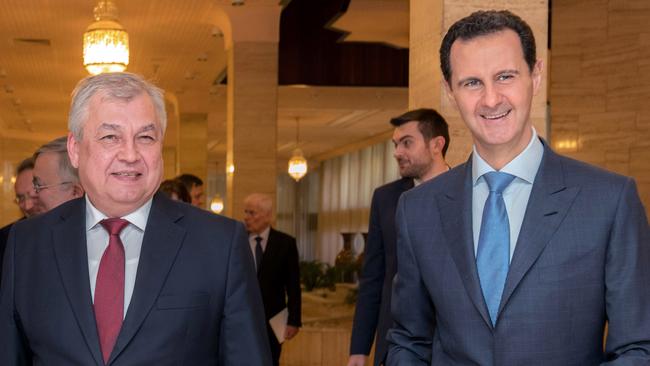Israel deal paves way for new Assad strike
Russia and Israel have come to an extraordinary agreement over the role of Iranian troops in Syria.

Russia and Israel have come to an extraordinary agreement over the role of Iranian troops in Syria, paving the way for a regime offensive against one of the last rebel-held areas in the south of the country.
Russia has agreed to Israeli demands that Iranian-backed militias be held back from the border with the occupied Golan Heights, according to Israeli television. A separate report in a Saudi newspaper said the regime had agreed that Iranian militias would stay 25km away. Moscow has also agreed not to try to stop Israeli bombing raids on Iranian bases and militias elsewhere in the country.
In return, Israel will not try to stop Syrian President Bashar al-Assad’s forces retaking the rebel-held areas next to the Golan Heights and the nearby Jordanian border.
The deal is said to have been finalised in a telephone call on Friday between Israeli Defence Minister Avigdor Lieberman and his Russian counterpart, Sergei Shoigu, and follows a visit to the Kremlin this month by Israeli Prime Minister Benjamin Netanyahu.
Thanks to the agreement, Russia will be able to support a regime advance on southwest Syria, where rebels hold a stretch of territory from the border by the Golan Heights through the city of Daraa to a point on the Jordan border.
The fate of Daraa, once called the “cradle of the revolution”, has been the subject of secret talks for months. The area is covered by a “de-escalation zone” negotiated between the US and Russia last year, meant to reassure Jordan and Israel that the war would not reach their borders. However, the Assad regime wants to regain control over all its territory; Daraa is an easier target than Idlib, the other main rebel pocket.
Russian Deputy Foreign Minister Mikhail Bogdanov said yesterday Moscow, the US and Jordan would meet to discuss the future of the Daraa de-escalation zone. A rebel official said Syria and Iran had never approved of the de-escalation agreement and were determined to break it.
The Times


